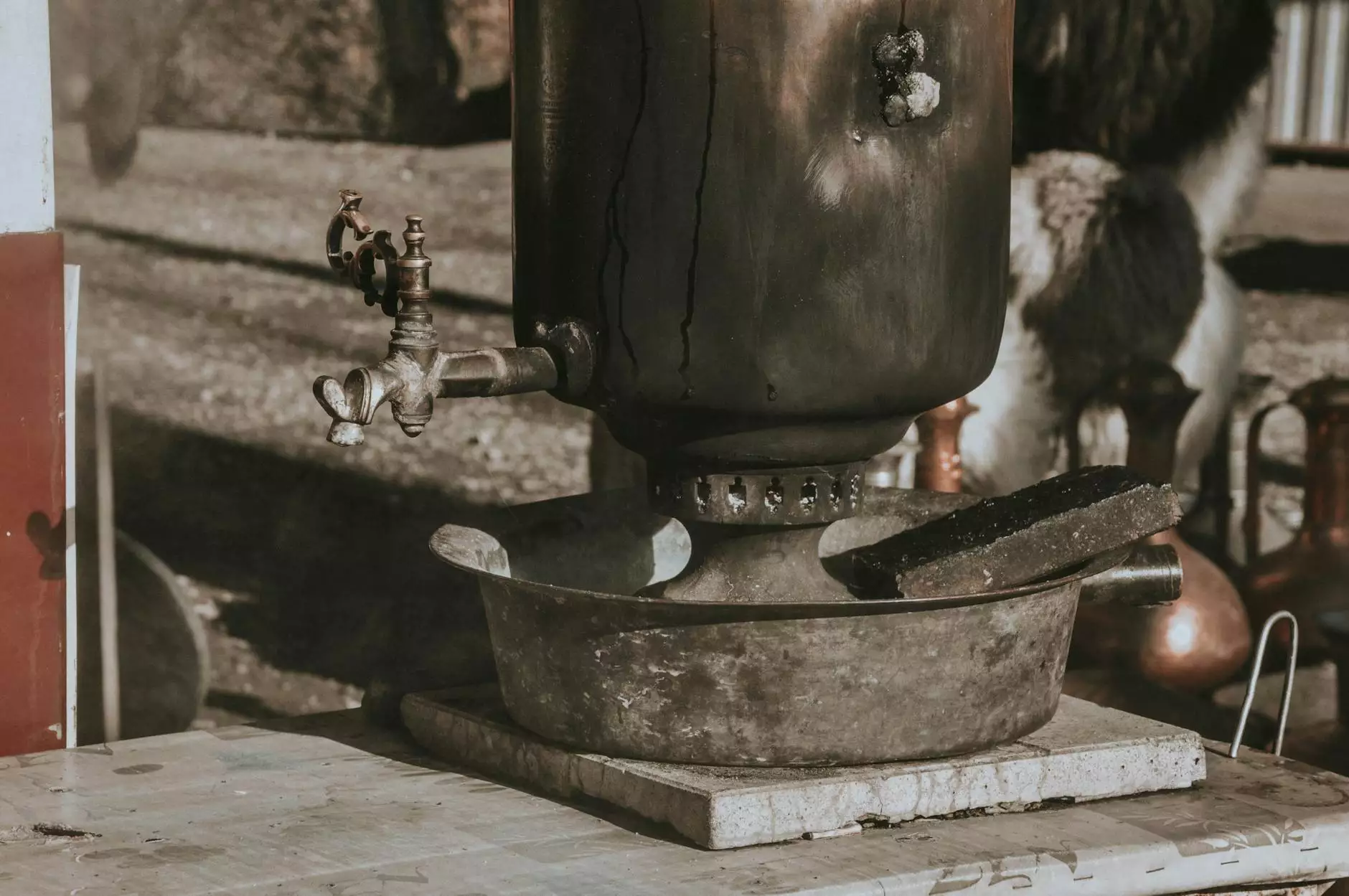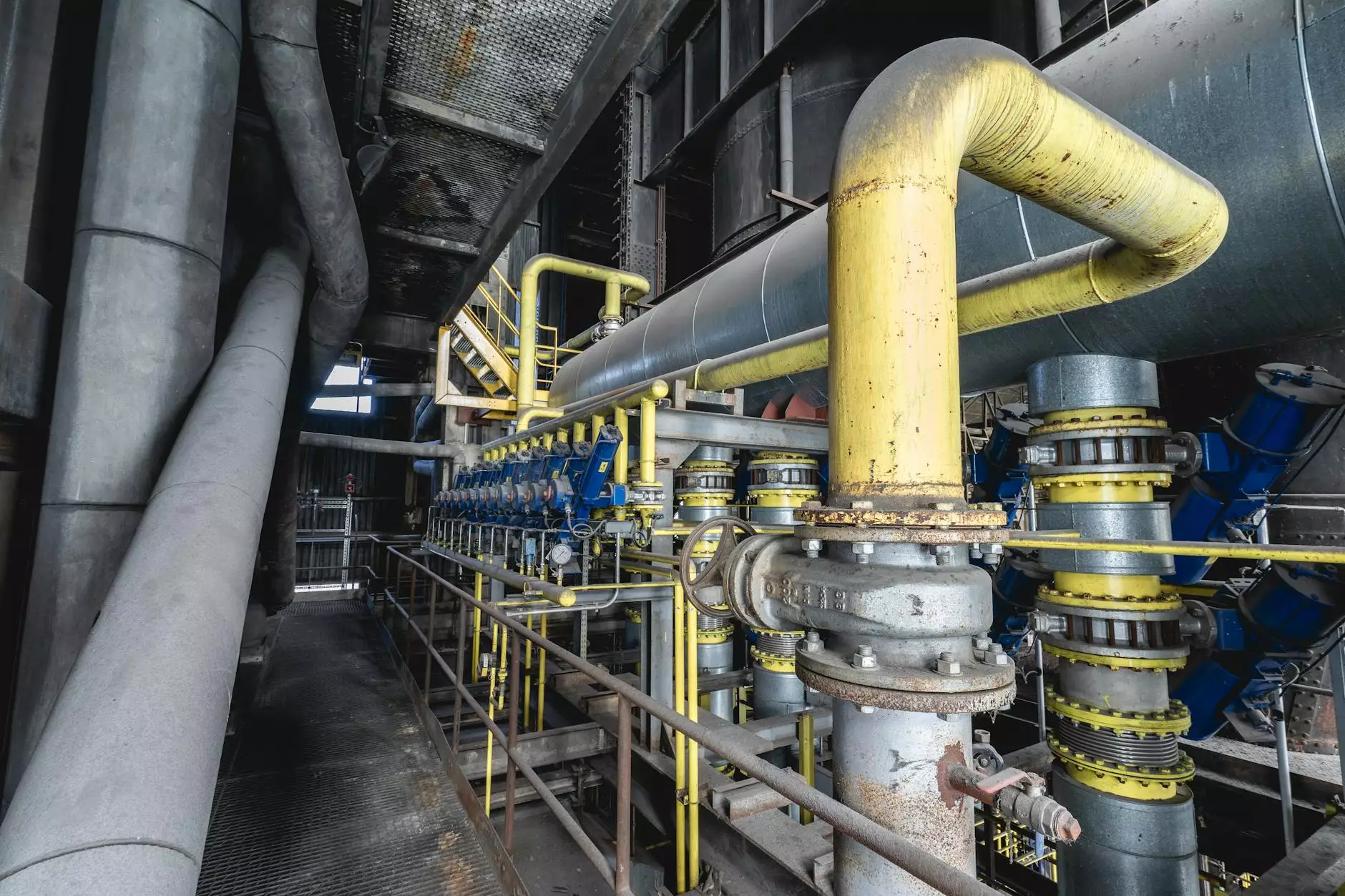Enhancing Boiler Efficiency with Chemical Water Treatment Solutions

In the industrial landscape, maintaining efficiency and longevity of boiler systems is crucial. A pivotal aspect of this process is the chemical for boiler water treatment. Understanding the significance of these chemicals and their applications can lead to improved operational performance, reduced risks of system failures, and extensive cost savings in the long run.
Understanding Boiler Water Treatment
The primary purpose of boiler water treatment is to maintain water quality within the boiler system, ensuring that steam generation is not hindered by impurities. Water used in boilers often contains dissolved solids, oxygen, and other contaminants that can lead to various issues such as:
- Corrosion: When oxygen and carbon dioxide are present in the water, they can lead to severe corrosion of metal components.
- Scaling: High mineral content can precipitate and create scale buildup on the heat exchange surfaces.
- Foaming: Surfactants in the water can cause foam, leading to poor steam quality and efficiency.
- Carryover: Contaminants can be carried over into the steam, affecting downstream equipment.
The Role of Chemicals in Boiler Water Treatment
Chemicals for boiler water treatment perform several essential functions to keep the system operating efficiently. The main categories of these chemicals include:
1. Oxygen Scavengers
Oxygen scavengers are critical in preventing corrosion within the boiler system. They react with oxygen in the water and reduce its concentration. Common oxygen scavengers include:
- Sodium Sulfite
- Hydrazine
- Ammonium Bisulfite
2. Scale Inhibitors
These chemicals are designed to bind mineral particles and prevent them from depositing on heat transfer surfaces. Scale formation can dramatically affect the efficiency of a boiler. Some popular scale inhibitors include:
- Phosphonates
- Polyacrylic Acids
3. pH Adjusters
Maintaining the correct pH level is vital for protecting boiler components from corrosion. pH adjusters help in controlling the acidity or alkalinity of the water, ensuring optimal conditions.
- Caustic Soda
- Sodium Bicarbonate
4. Boiler Water Treatments for Main Processes
Some treatments are applied to manage specific operational conditions. These can include:
- Condensate Treatment: To prevent corrosion in the steam return systems.
- Filtration and Softening: To remove particulates and lower hardness levels.
Advantages of Effective Boiler Water Treatment
Utilizing chemical for boiler water treatment provides a plethora of benefits for industrial operations. Consider the following:
1. Increased Boiler Efficiency
A properly treated boiler will run at higher efficiency, leading to reduced fuel consumption and lower operational costs.
2. Longevity of Equipment
By preventing corrosion and scale buildup, the lifespan of boiler components can be significantly extended, delaying the need for replacements and repairs.
3. Improved Safety
Boilers that are free from contaminants and operating at optimal conditions reduce the risk of dangerous failures, ensuring the safety of personnel and equipment.
4. Environmental Compliance
Using the correct chemical treatments aids businesses in complying with environmental regulations by minimizing emissions and waste generated from boiler operations.
Best Practices for Implementing Boiler Water Treatment
Successful boiler water treatment is not only about using the right chemicals; it also involves adopting best practices for their application. Here are some guidelines:
1. Regular Water Testing
Conduct thorough and routine analyses of boiler water to monitor parameters like pH, conductivity, and the presence of dissolved solids. This informs adjustments in treatment plans promptly.
2. Chemical Monitoring and Dosing
Install automatic dosing systems to ensure that chemicals are added in precise amounts based on water quality tests, thus optimizing treatment efficiency and reducing chemical waste.
3. Alkalinity Control
Regularly check and adjust the alkalinity of the boiler water to promote optimal conditions for scale inhibition and corrosion prevention.
4. Training for Personnel
Equip your team with proper training on the importance of boiler water chemistry and operational best practices to ensure all safety measures are followed and system efficiency is maintained.
Choosing the Right Chemical Supplier
When it comes to procuring chemical for boiler water treatment, choosing the right supplier is paramount. Consider the following when selecting a supplier:
1. Quality Assurance
Ensure that your supplier adheres to industry standards and provides high-quality chemicals suitable for your operational requirements.
2. Technical Support and Service
A supplier that offers technical guidance can help your business optimize the treatment process, troubleshoot issues, and enhance safety.
3. Customization
Look for suppliers who can tailor their chemical solutions according to your specific water quality and operational needs.
4. Environmental Sustainability
Choose suppliers who provide eco-friendly options and profuse their commitment to sustainability, helping your business align with environmental responsibilities.
Conclusion
The effective use of chemical for boiler water treatment is imperative in maximizing boiler efficiency, ensuring long equipment life, and promoting safety while adhering to environmental standards. By employing best practices, leveraging expert knowledge, and collaborating with a reliable chemical supplier, businesses can optimize their boiler systems for superior performance and profitability.
For further information and comprehensive services, including Water Purification Services, Water Suppliers, and Water Stores, visit bimakskimya.com.tr to learn how our solutions can be tailored to meet your business needs!









